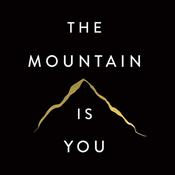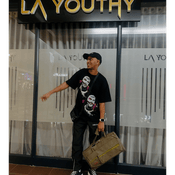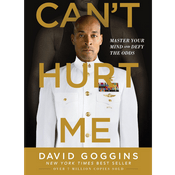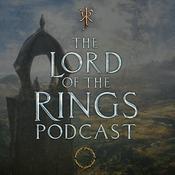76 episodes
- In a small medieval palace on Kathmandu’s Durbar Square, a young girl chosen from a caste of Buddhist goldsmiths watches over this broad valley and protects the country and its people.
She’s the embodiment of Devi, the universal goddess, and Hindu kings have sought her blessings for centuries to legitimate their rule.
Isabella Tree uncovered the secrets of this strange tradition over many years and many visits to Nepal. She peeled away the layers of myth, religious belief and modern history, and she slowly overcame the reluctance of priests and caretakers to meet Kathmandu’s living goddess herself.
Isabella is the author of The Living Goddess, Islands in the Clouds, The Book of Wilding, and other books. Her work has appeared in Granta, National Geographic, The Sunday Times and other publications. She’s an award winning conservationist, and lives West Sussex, in the middle of the Knepp Wildland, the first large-scale rewilding project in lowland England.
We spoke about the powers of the living goddess, how she is chosen, the connection to tantric ritual, and how the goddess foreshadowed the massacre of Nepal’s royal family.
Personal Landscapes relies on the support of listeners like you to keep going. Please consider joining my Member's Club on Substack, where you'll find show notes for each episode, book reviews, reading-related videos, and more.
You’ll be supporting an independent ad-free podcast that publishes carefully curated conversations like this one, backed by decades of reading. Go to https://www.personallandscapespodcast.com/p/start-here
Follow my travels — and buy my books — on https://ryanmurdock.com/
This is a public episode. If you'd like to discuss this with other subscribers or get access to bonus episodes, visit www.personallandscapespodcast.com/subscribe - Every book I read about Easter Island said roughly the same thing: a small, isolated group of people living on the world’s most remote inhabited island couldn’t have sculpted, moved and erected the enormous statues that are Easter Island’s most famous feature.
Or if they had, they must have been consumed by a monument building obsession that led them to cut down all the trees, causing mass starvation and warfare, and destroying their own civilization in the process.
Archaeologist Mike Pitts tells a very different and far more compelling story.
He draws on the latest research to build a picture of a remarkable cultural flourishing in a remote and unforgiving environment, by people with a highly sophisticated system of agriculture and a rich tapestry of myths, religion, political stratification and artistry.
His new book is one of my top reads of the year, and I couldn’t wait to talk to him about it.
We spoke about the small group of settlers who discovered the island, the genesis of the famous ecocide myth, and what those massive stone statues really mean.
Personal Landscapes relies on the support of listeners like you to keep going. Please consider joining my Member's Club on Substack https://www.personallandscapespodcast.com/p/start-here
You’ll be supporting an independent ad-free podcast that publishes carefully curated conversations like this one, backed by decades of reading.
This is a public episode. If you'd like to discuss this with other subscribers or get access to bonus episodes, visit www.personallandscapespodcast.com/subscribe - Moonlighting posed as a detective show, but it was actually an old-fashioned 1940s screwball-comedy. Mysteries were just a framework for the romantic tension between the two main characters, played by Bruce Willis and Cybill Shepherd.
In an era when television was serious and even the comedies were overly-earnest, Moonlighting threw out all the rules.
Chase scenes ended in food fights and soap suds. They did song and dance routines, made film noir and Shakespeare episodes, broke the fourth wall, and did cold opens where the lead actors spoke to the audience in character.
It really is a time-capsule of what was great about the 1980’s, when we could still laugh at ourselves without being ‘triggered’.
Today I’m bringing you the inside story on the creative chaos and private feuds at the heart of that decade’s most original TV show.
I'm joined by Scott Ryan, author of Moonlighting: An Oral History.
We spoke about Moonlighting’s most creative episodes, the chaos and fighting on-set, and the myth the so-called Moonlighting Curse.
This is a public episode. If you'd like to discuss this with other subscribers or get access to bonus episodes, visit www.personallandscapespodcast.com/subscribe - I first encountered Constantine Cavafy in Lawrence Durrell’s Alexandria Quartet, where ‘the old poet’ represented the ghostly voice of the city.
I was immediately attracted to the dreamlike quality of his poems, and the way he captured a sense of melancholy that I’ve always felt.
Cavafy wrote about human desire, inglorious epochs of Greek history, and civilizations in decline, using plain factual descriptions undressed by metaphor.
But how did a writer who showed little promise in his youth find a place in the literary canon and become ‘the poet of Alexandria’?
I’m joined by Gregory Jusdanis, co-author of Constantine Cavafy: A New Biography.
We spoke about Cavafy’s childhood of faded aristocratic grandeur, the Mediterranean Greek world he grew up in, and his lifelong poetic preoccupations.
Personal Landscapes relies on the support of listeners like you to keep going. Please consider joining my Member's Club on Substack https://www.personallandscapespodcast.com/p/start-here
You’ll be supporting an independent ad-free podcast that publishes carefully curated conversations like this one, backed by decades of reading.Find me on: Instagram
YouTube
X
Follow my travels — and buy my books — on ryanmurdock.com
This is a public episode. If you'd like to discuss this with other subscribers or get access to bonus episodes, visit www.personallandscapespodcast.com/subscribe - Peter Matthiessen is a towering figure of twentieth-century American letters, and the only writer to win the National Book Award in both fiction and nonfiction.
He’s also a difficult man to pin down because he accomplished so much in so many different areas.
He co-founded The Paris Review and spied for the CIA. He was best known for 'nature' books like The Snow Leopard, but thought of himself as a novelist. He was also a spiritual seeker who reached the highest ranks of Zen Buddhism. How do you come to grips with a life as varied as this?
I'm joined by biographer Lance Richardson, the author of True Nature: The Pilgrimage of Peter Matthiessen.
We spoke about Matthiessen’s privileged background, his life-changing journey to Nepal, his serial womanizing, and his greatest books.
Personal Landscapes relies on the support of listeners like you to keep going. Please consider joining my Member's Club on Substack https://www.personallandscapespodcast.com/p/start-here
You’ll be supporting an independent ad-free podcast that publishes carefully curated conversations like this one, backed by decades of reading.Find me on: Instagram
YouTube
X
Follow my travels — and buy my books — on ryanmurdock.com
This is a public episode. If you'd like to discuss this with other subscribers or get access to bonus episodes, visit www.personallandscapespodcast.com/subscribe
More Arts podcasts
Trending Arts podcasts
About Personal Landscapes
Ryan Murdock talks with the world’s most original writers, publishers and travelers to get the story behind great books about place. www.personallandscapespodcast.com
Podcast websiteListen to Personal Landscapes, Die Storiekas and many other podcasts from around the world with the radio.net app
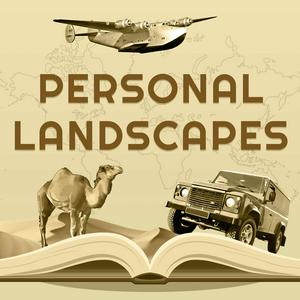
Get the free radio.net app
- Stations and podcasts to bookmark
- Stream via Wi-Fi or Bluetooth
- Supports Carplay & Android Auto
- Many other app features
Get the free radio.net app
- Stations and podcasts to bookmark
- Stream via Wi-Fi or Bluetooth
- Supports Carplay & Android Auto
- Many other app features


Personal Landscapes
Scan code,
download the app,
start listening.
download the app,
start listening.




